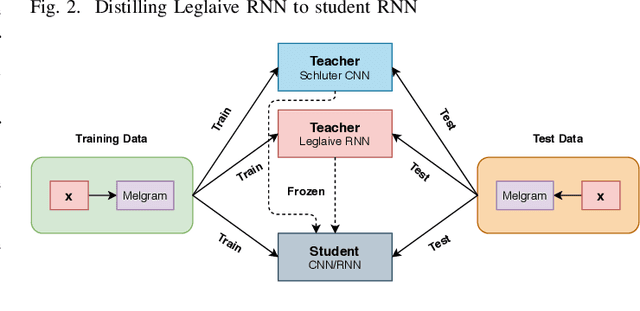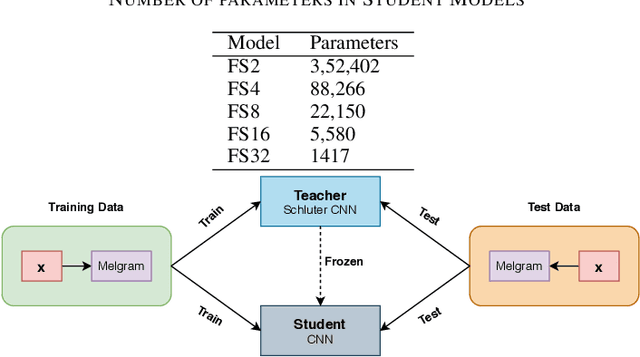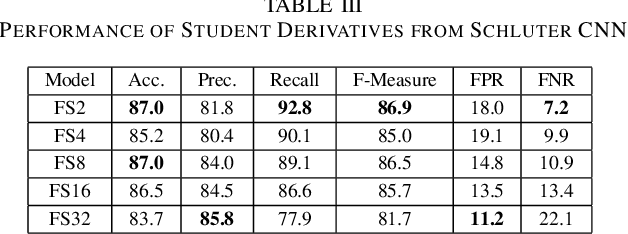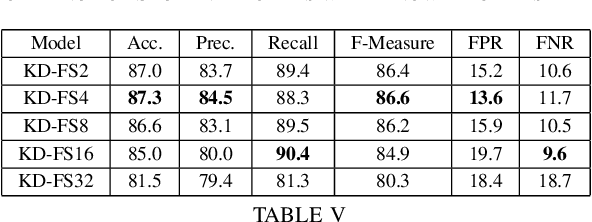Knowledge Distillation for Singing Voice Detection
Paper and Code
Nov 09, 2020



Singing Voice Detection (SVD) has been an active area of research in music information retrieval (MIR). Currently, two deep neural network-based methods, one based on CNN and the other on RNN, exist in literature that learn optimized features for the voice detection (VD) task and achieve state-of-the-art performance on common datasets. Both these models have a huge number of parameters (1.4M for CNN and 65.7K for RNN) and hence not suitable for deployment on devices like smartphones or embedded sensors with limited capacity in terms of memory and computation power. The most popular method to address this issue is known as knowledge distillation in deep learning literature (in addition to model compression) where a large pretrained network known as the teacher is used to train a smaller student network. However, to the best of our knowledge, such methods have not been explored yet in the domain of SVD. In this paper, efforts have been made to investigate this issue using both conventional as well as ensemble knowledge distillation techniques. Through extensive experimentation on the publicly available Jamendo dataset, we show that, not only it's possible to achieve comparable accuracies with far smaller models (upto 1000x smaller in terms of parameters), but fascinatingly, in some cases, smaller models trained with distillation, even surpass the current state-of-the-art models on voice detection performance.
 Add to Chrome
Add to Chrome Add to Firefox
Add to Firefox Add to Edge
Add to Edge